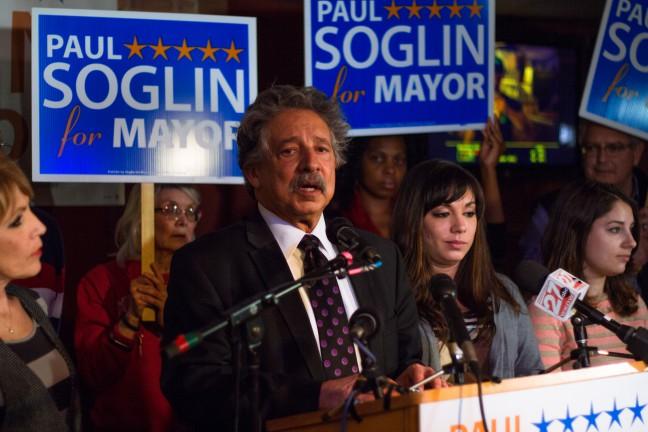On Jan. 10, Madison Mayor Paul Soglin announced he would be running for the Democratic Party nomination for the chance to take on Scott Walker in the governor’s race this November.
On July 17, he announced he would not be running for re-election to his post as mayor.
On Aug. 14, the Democratic primary for governor (among other things) was held. Soglin came in seventh place out of ten candidates, racking up 5 percent of the vote.
On Oct. 19, he made what former Madison Mayor Dave Cieslewicz called “the least surprising surprise announcement imaginable.” Despite his earlier announcement to the contrary, Soglin said he would run again.
That made him the eighth declared candidate for mayor of Madison. Quite frankly, he should’ve done us a favor and kept it at seven.
This is not to say Soglin is without his merits. Rather, his record of fighting for progressive causes is genuinely impressive, especially considering how long he’s been fighting.
But the Paul Soglin of 2018 is not the same Paul Soglin who was elected to the Madison City Council at the age of 22 (though he’s got the same mustache). His rise to political prominence came as a result of his prominent role in anti-war protests in the late 1960s. As a city councilman, he represented the district encompassing Mifflin Street, which at that time was home to the left-leaning protest movement at the University of Wisconsin. Police resentment of the liberal students turned the first annual Mifflin Street Block Party into a riot lasting three days, during which Soglin was proudly arrested. That moment in time serves as a stark contrast to his calls to end the annual celebration, which came during his third term. In fairness, Soglin had just turned 24 during the first Mifflin — by the next one, he’ll be 74.
Seventy-four years is a long time to live. Some would say age signifies the aggregation of years of learned experiences, and all this experience would make Soglin worthy of keeping his moniker as Madison’s “Mayor for Life.” His most recent term has shown that perhaps that nickname is not an entirely positive thing. Repeatedly, the mayor moved to ban sleeping on the street, leading some activists to accuse him of trying to criminalize homelessness.
By repeatedly complaining about nuisance offenses committed by the homeless and painting them as criminals, Soglin hasn’t shaken this accusation. As Ald. David Ahrens, District 15, put it, “… this very moral, values-laden judgment [really] does nothing to address what the problem is.” Other alders have said the mayor spends lots of time watching security footage in areas with high homeless populations, sometimes playing it during meetings.
But that’s not to say Soglin has dedicated his “third empire,” as WPR called it, to being a despicable and out-of-touch boomer. Despite a mixed record on homelessness, he has had his moments. In 2014, the city set a goal, in-line with the “housing first” approach to build 1,000 affordable housing units over five years — a goal the city looks to be on its way to achieving.
In his mayoral campaign, Soglin has made sure to ensure voters know he’s experienced, with the implication being that he alone can continue to push Madison forward. On that point, he’s wrong.
Also in the race are some extremely qualified candidates, including Ald. Maurice Cheeks, District 10; former executive director of the Tenant Resource Center Brenda Konkel and Satya Rhodes-Conway, senior associate at the Center on Wisconsin Strategy. Both of the latter are former alders as well.
In fact, one could go so far as to say the current political climate makes Soglin less qualified for mayor than the aforementioned. He’s just not the radical progressive he once was.
Sammy Fogel (shfogel@wisc.edu) is a freshman majoring in political science and Spanish.


